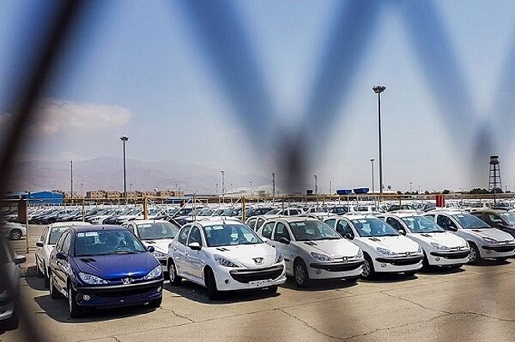Article 90 on rescuing the automobile industry/inaction of governments in compensating functional losses
The pricing order that has brought the automobile industry to the abyss of destruction in recent years and left a huge loss of more than 100 thousand billion tomans on the hands of the car manufacturers has remained in place even with the 13th government and it seems that it has its foothold until bankruptcy. Complete car manufacturers have tightened.
 Khodrocar - high production costs, lack of productivity, surplus power and other such things are among the reasons for the accumulated losses of car manufacturers, and among them, the main reason for this loss, which is mandatory pricing, has been ignored.
Khodrocar - high production costs, lack of productivity, surplus power and other such things are among the reasons for the accumulated losses of car manufacturers, and among them, the main reason for this loss, which is mandatory pricing, has been ignored.The command economy, which in the past years has led all economic sectors, including the automobile industry as a driving industry, to the abyss of destruction, these days has appeared in this industry with a new shape and image, and during the last 3 to 4 years, the automobile industry has suffered a loss. has faced a high accumulation.
Although the government declares that this pricing model is aimed at protecting the consumer, it ignores the interests of car company shareholders and by setting a price far lower than the actual cost price of cars, it has made it difficult for car manufacturers to continue working. So that the car manufacturers announced that they will even lose up to 50 million tomans on each car.
In the end, this led to a decrease in production circulation, a decrease in the amount of supply, and ultimately an increase in prices to the point where, over time, the gap between the factory price and the market increased dramatically and false demand was formed, so that millions of demands were formed for each car.
Over time, due to the decrease in production, the sale of cars was done by lottery, which added to the inflammation of the car market. The winners of this lottery marketed their cars at high prices, and this led to more anxiety in the car market, and finally the rights of the consumer, which was the main purpose of mandatory pricing, were forgotten, and in this case, the car manufacturer was the main victim.
In the constitution, the issue of mandatory pricing is addressed with the aim of protecting the interests of manufacturing companies, and based on article 90 of the law on the implementation of macro-policies, article 44 of the constitution, if the government, for any reason, changes the selling price of goods or services of companies subject to transfer or other companies If the non-governmental economy is obliged to pay a price lower than the market price, the government is required to pay the difference between the ordered price and the cost price from its own credits and resources in the year, or it must deduct from the debt of these companies to government organizations.
This is due to the fact that in the past years, not only the government has not paid in this field, but by insisting on the continuation of mandatory pricing, it has led to more losses and reduced liquidity of car manufacturers due to the reduction of production.
This is while at the end of every year the Supreme Council considered a certain amount of credit as a facility for car manufacturers, but this support solution has been cut off in the past two years and has put a lot of pressure on car manufacturers, leading to more liquidity shortages and the production of incomplete cars.
In the meantime, some car manufacturers such as Iran Khodro Industrial Group, by focusing on completing these cars and supplying them to customers and the market, have been able to provide the credits they need to a certain extent, but the interests of shareholders and consumers have been ignored by the government's actions.
In this situation, the need to pay attention to Article 90 of Article 44 of the Constitution regarding the payment of the difference between the mandated price and the cost price rate by the government in order to protect the rights of the shareholders seems more than ever because it seems that if the current conditions continue And if this legal provision is not determined, the life of the car manufacturers will be faced with buts and ifs.
The government has not yet announced its position in this field clearly, while if it had attended this issue in time, not only would we not have witnessed the current situation of car manufacturers, but the black market of cars would not have formed, therefore, it is necessary for the government to implement this as soon as possible. Act according to the law.
Latest News


